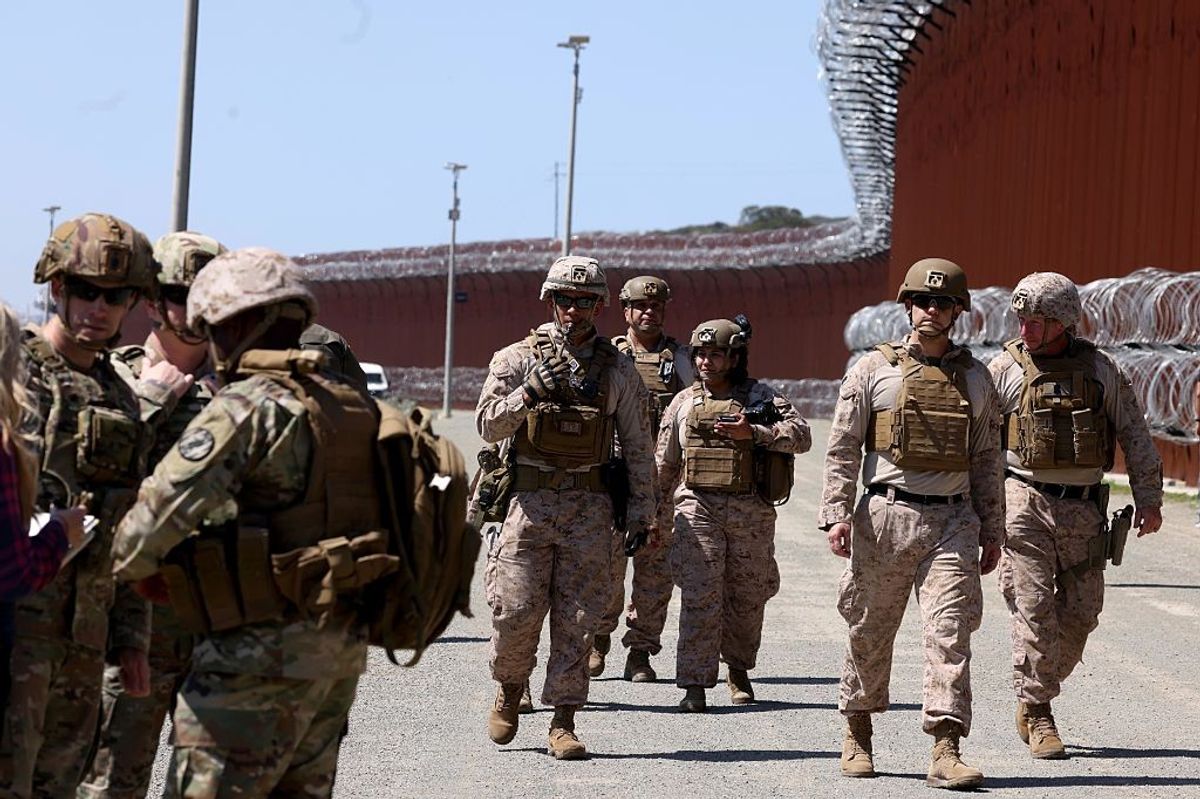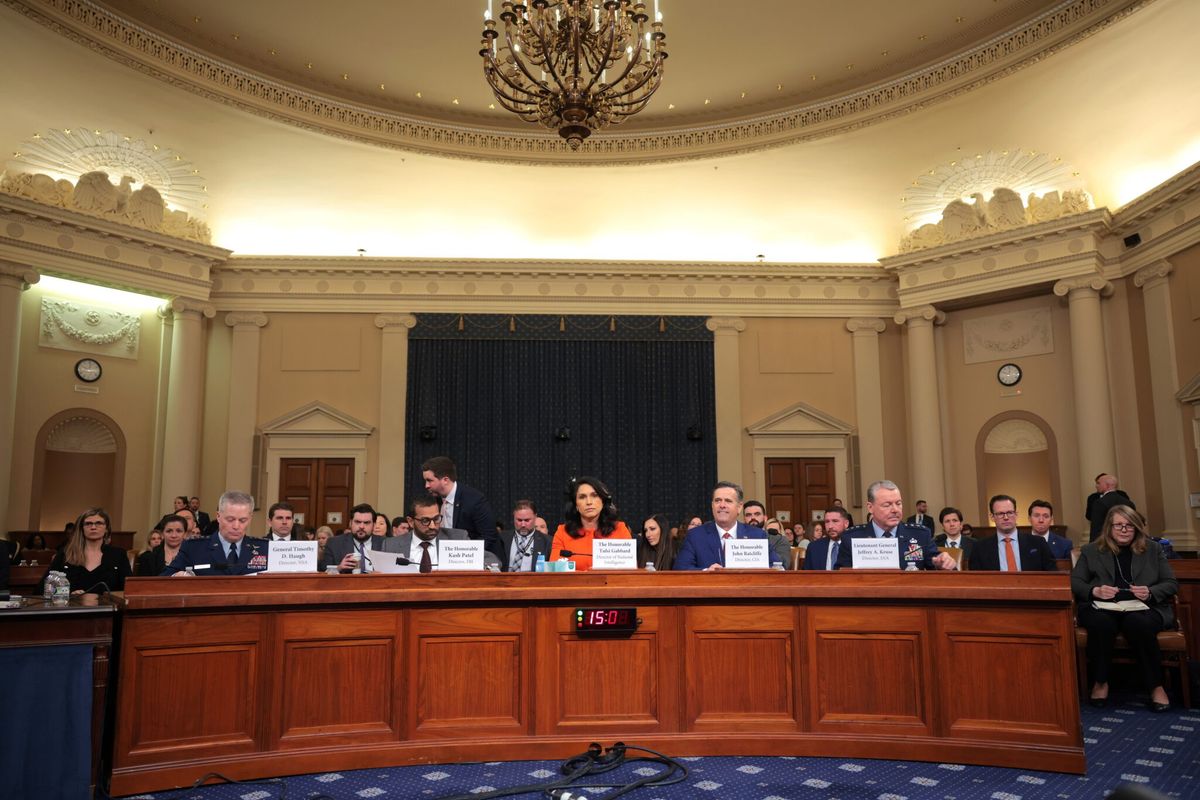The apparent shift by the Trump Administration towards more traditional foreign policy has been welcomed by many inside, and more outside, of the U.S., as the global security system depends on a strong American role. Nevertheless, even a more ‘normal’ Trump foreign policy harbors risks, known and unknown. The known ones concern his unique way of conducting policy. The unknowns are the new threats that likely render traditional foreign policy inadequate and will sorely test Trump’s team.
Not since before World War II has a presidential candidate sounded more out of tune with a hundred years of American global responsibility. Candidate Trump, in what Walter Russell Mead termed a ‘Jacksonian’ foreign policy not seen since ‘old Hickory himself, combined isolationist and nationalist themes, from the border wall, trade agreements renunciation, and questioning of alliances, to defense spending increases and challenge to near-peer competitor China on currency, trade, and even Taiwan policy.
The first acts of President Trump in this vein did not surprise: a crazy-quilt, mini-ban on Muslims dead on arrival in the courts, torpedoing the Pacific Trade Agreement, and revelation-a-day oddities involving National Security Advisor Michael Flynn. Meanwhile Presidential ‘strategist’ Steve Bannon blackballed sub-cabinet nominee after nominee, while State’s leader, Secretary Rex Tillerson, seemed absent as Trump slashed a third of his budget. And with the President issuing gratuitous tweets savaging foreign leaders he had just met, such as Germany’s Angela Merkel, it all looked like a revolution towards chaos on the part of the global adult.
What a difference a month makes. State’s budget, partially restored; NATO, reassured by the president himself. He has had far more contacts with world leaders in his first 100 days than any previous president and appears to like it. And admiration is mutual. Middle East leaders appalled at President Barack Obama’s ‘share the region with Iran’ advice sing Trump’s praises. He then scores two ‘crisis diplomacy’ victories: a quick, almost universally applauded missile strike in Syria after Putin and Assad incomprehensively handed Washington a provocation made to knock out of the park. Then North Korea’s inevitable challenge fizzled, while China, distancing itself from Russia over Syria, mobilized troops along the Korean border, cut off North Korea’s coal exports, and upped the rhetoric against Kim Jong-un. At home, the estimable Lieutenant General H.R. McMasters replaced Flynn. Tillerson, supposedly absent, showed up everywhere, including Moscow, where Putin, after blustering about the Syrian strike, hosted the Secretary himself.
It now appears clear that for Trump, the responsibilities (and advantages) of leading a successful global system beats tearing it apart. The senior Trump foreign policy pantheon, with Flynn gone, may be the best in a generation. And they seem to get along. Russia and Iran are in the dock, while common ground, as it should be, is sought with China. Finally, the Trump agenda to ‘make America great again,’ if successful, could yield international as well as domestic gains.
The relative moderation and success of Trump foreign policy has led some, including Matthew Kroenig in Foreign Affairs, to endorse it, and even the usually liberal Fareed Zakaria in the Washington Post supported Trump’s Syria strike. Doubters remain. The title of that same Foreign Affairs edition was “Present at the Destruction,” with other authors castigating Trump’s foreign policy instincts. Two well-regarded former Deputy Secretaries of State, Bill Burns and Tony Blinken, also have recently attacked Trump’s foreign policy. The focus of most such criticism includes lack of senior foreign policy appointments, the State Department budget hemorrhage, message discipline, and above all, fear that Trump’s impetuosity and rancor could drive a disastrous policy decision. These we can consider the ‘known risks.’
So, are we buckling down to a traditional American foreign policy with more Ivanka pizzazz, military muscle, and commander in chief unorthodoxy which the world largely ignores? Not so fast. The assumption that all’s well if Trump and company adopt a “normal” foreign policy needs to be examined.
First, a normal foreign policy would mean a return to Bill Clinton. Neither George Bush between 2001-2007 nor Barack Obama in his second term conducted traditional foreign policy. Both deviated from managing a global security system by seeking transformational change, leveraging our values to cope with new situations. For Bush, it was bringing democracy to the Middle East in response to terrorism. For Obama, it was trust in the “arc of history,” relying on liberal values as an invisible hand no longer requiring American (particularly military) action.
Both failed, compounding the two challenges we now face. And normal American diplomacy towards which Trump may be moving might not succeed in face of them.
The first of these challenges is the rise of two near peer competitors, China and Russia, who have the intent and partially the capability (with allies Iran and North Korea) to challenge this system. Thus, the global order and all that brings to the world, including America, is in question.
The second is the erosion of many of the West’s advantages. The U.S., or at least the lower middle class, has been weakened by globalization, and its allies Europe and Japan far more so. Populations throughout the democratic world are rebellious, and that limits any foreign policy, requiring risks, costs, and compromises.
The problem for Trump, and his advisors steeped in the muscle movements of the last 30 years, is that their playbook may not work anymore. Generally, Washington’s reaction to post-cold war crises was to treat them as sui generis problems, neither linked to larger developments, nor placing the West’s total dominance at existential risk, and thus not requiring any American grand strategy beyond “system hygiene.” If risks were minor, so were costs of action. Apart from Afghanistan and Iraq, the global security system ran on the cheap. Moreover, as the U.S. and allies would inevitably overcome each crisis, they did not have to compromise significantly on their values to rack up cheap victories.
But likely no longer, when a disordered West faces near peer competitors. America can still prevail; its power is formidable and its allies, if weakened, still rich. But success will not come cheap or easy. Resting on our liberal principles, eschewing compromises, and moving aircraft carriers about will not be enough. We face the return of real diplomacy, and that means balancing, not ignoring, risks, costs, and compromises.
The new team doesn’t seem to get this yet. Their admonishments to the Russians and Chinese about Syria and North Korea reflect old think, essentially “pull up your socks and deal with these problems or the world will blame you.” But the other side(s) care little about world opinion and will do us no favors. We thus have to use serious carrots and sticks.
Keeping Iran from dominating the Middle East means confronting Tehran, always risky, but also accommodating some Iranian interests. Likewise, China with North Korea, and Russia in Ukraine. Can we yield the right of Ukraine to apply for membership in NATO? Can we pull out of the peninsula if Korea were united? As Afghanistan slides into chaos, will we finally compromise with Pakistan—or compel it—to help save Kabul?
No president has faced challenges like this since Reagan, and the patterns of the last 30 years are no longer a guide. Outside advisors and Trump himself will have to chart new courses, which those steeped in traditional policy could hardly imagine.


















